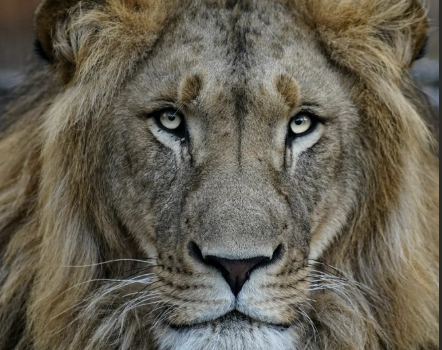JGI commemorates Cecil Week 10 years since iconic lion was killed by American dentist

On 1 July 2015, an American dentist shot and killed Cecil the lion on his quest for a trophy to bring back from Africa. What followed was a wave of global outrage that gave way to more robust discussion about the ethics of trophy hunting.
Ten years since Cecil’s life was ended, the Jane Goodall Institute is joining a chorus of organisations around the world commemorating Cecil Week (June 24-July 2). Cecil Week aims to profile the work being done around the world to end sport hunting, stop the illegal wildlife trade, and promote genuine, community-rooted conservation efforts.
#RememberCecil
Cecil was an iconic animal. Known for his distinctive dark mane and confidence, he was a major drawcard for tourism which benefitted local communities. Cecil was also part of a decade-long study by the Oxford University Wildlife Conservation Research Unit (WildCRU) and roamed Hwange National Park in Zimbabwe fitted with a satellite collar.
Writing in 2015, Dr Jane Goodall reflected on Cecil’s death as well as the subsequent killing of one of his cubs by a rival male:
“Today, checking on the situation regarding the Minnesota dentist who killed Cecil the lion, I discovered that a rival male has killed one of Cecil’s cubs who were abandoned by Cecil’s brother, Jericho. Almost certainly the other cubs will be killed as well. This is what lions do when they take over a pride, thus eliminating the genes of their rival. And what of all the genetic disruption of the species’ future? For the hunter will go after the lions with the biggest manes, in their prime – those who carry the genes likely to result in the perpetuation of magnificence. We can never know what role Cecil’s cubs might have played – he was killed and this led to their death.
What makes things worse is 1) the fact that Cecil was illegally lured out of the safety of the protected area where he had established his territory. Palmer insists, rightly or wrongly, that he was not aware of this. And 2) Cecil was not even killed outright by the bow hunter, but spent 40 hours wounded and in pain before he was found and finished off with a bullet.”
Dr Goodall’s article goes on to question whether Cecil, beloved as he was and remains, is any different to the countless disfigured heads adorning walls around the world. Should charismatic individuals or species be accorded greater moral value than those less appealing to the human gaze?
#BanTrophyHunting
The Jane Goodall Institute Global’s Policy on Wildlife Tourism provides our position on trophy hunting. An extract of that policy is provided below:
“The Jane Goodall Institute does not consider trophy hunting to be ethical wildlife tourism and is opposed to trophy hunting based on ethical, ethological, ecological and economic concerns. These include the harm to individual animals, the removal of prime individuals from their groups (with damaging social and genetic consequences), the inequality of allowing a select few people (often foreign tourists) to kill endangered species based on their financial privilege. Trophy hunting has not been demonstrated to contribute to conservation aims or to significantly improve the prosperity and wellbeing of local communities in the vast majority of cases (contrary to some claims), particularly in comparison to ethical wildlife tourism activities. Thus trophy hunting is cruel and reduces the opportunity for beneficial tourism which could conserve local wildlife, protect and restore eco-systems, and bring economic benefit to local communities.”
We remain concerned that markets for trophy hunting can be used as conduits for illegal wildlife trade and will continue to advocate on this issue to secure a better and more compassionate future for wildlife, people, and the planet we share.
Learn more about Cecil Week here
